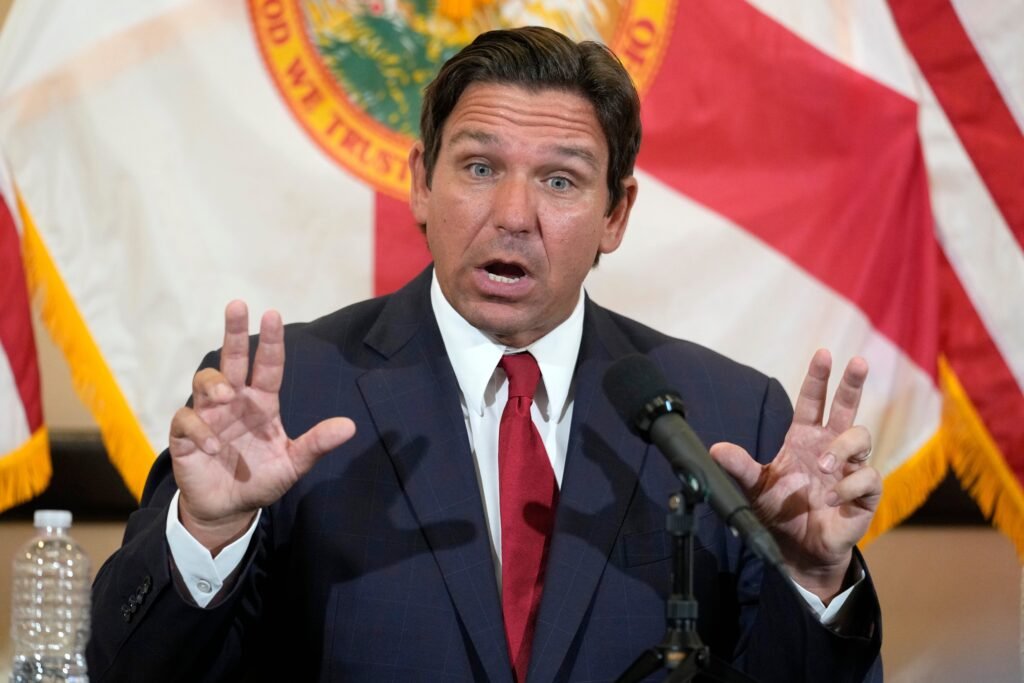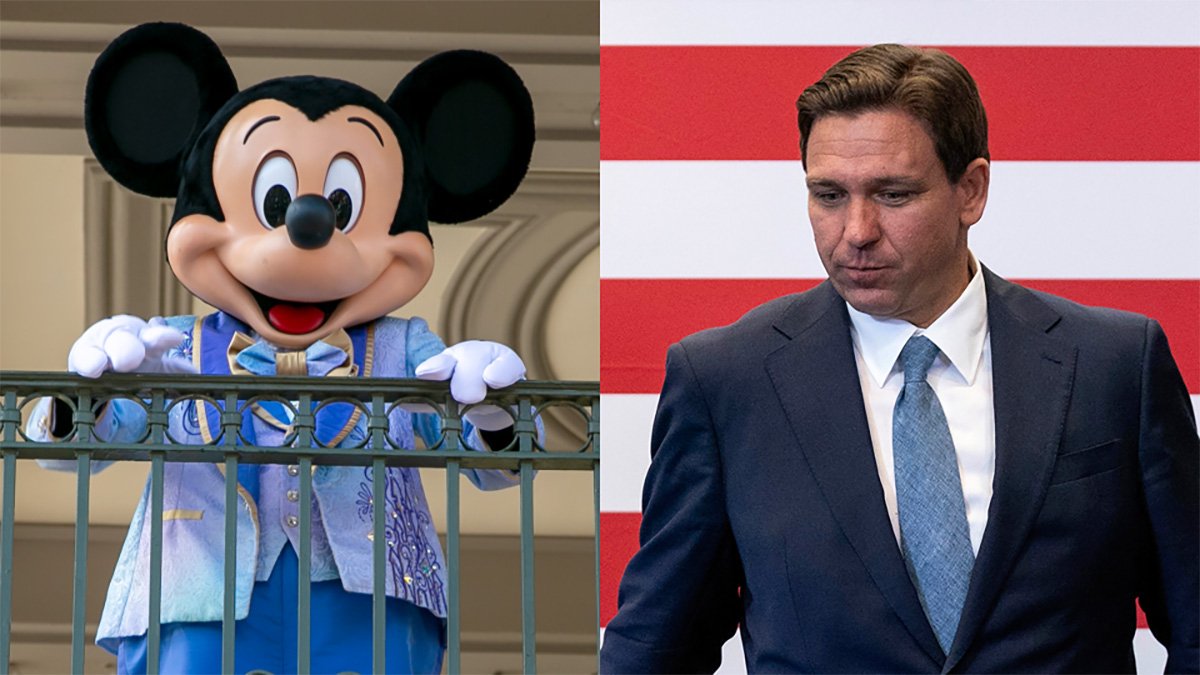An Inauspicious Presidential Bid

Ron DeSantis embarked on his presidential campaign with notable expectations, particularly in light of his high-profile tenure as Governor of Florida. Many analysts and political observers anticipated a successful run due to the state’s economic growth and his leadership during the COVID-19 pandemic. However, the Iowa caucus serves as a critical point of contention in his campaign narrative, showcasing significant failures that have raised concerns about his viability as a candidate.
Despite the predominantly white demographic of Iowa, which was expected to align with his conservative policies, DeSantis encountered unexpected challenges. Much of his campaign strategy hinged on appealing to a Republican base that values strong leadership and a clear, bold vision. However, his messaging struggled to resonate deeply with voters, leading to a lackluster performance in the caucus. An analysis of voter sentiment suggests that his campaign may have come off as too scripted, failing to establish an emotional connection with the electorate.
Additionally, DeSantis’s positioning around controversial topics, while initially garnering attention, may have alienated moderate Republicans and independents. His approach to cultural issues, which included a heavy focus on “woke” politics, appeared to backfire, as these discussions may not have aligned with the priorities and preferences of Iowa voters. The campaign’s inability to pivot and adapt its strategy, particularly in such a crucial early-state contest, raises questions about DeSantis’s overall campaign effectiveness.
Ultimately, the dissonance between DeSantis’s anticipated strength and his actual performance highlights the precarious nature of modern presidential bids. As candidates strive to navigate an increasingly complex political landscape, the lessons learned from Iowa may prove pivotal for DeSantis and future Republican hopefuls. The challenges he faced in this initial test could foreshadow further difficulties as the campaign progresses.
Policy Missteps and Public Backlash

Ron DeSantis has garnered significant attention for his controversial policies, drawing both support and dissent from various segments of the population. Among the most contentious initiatives is the attempted book banning, a move that aimed to limit access to certain educational materials in Florida schools. While DeSantis may have envisioned this strategy as a way to appeal to constituents valuing traditional education, the backlash was immediate and extensive. Critics argued that such censorship undermines educational integrity and stifles critical thinking, leading to intensified scrutiny from educators, parents, and civil rights organizations.
Another significant policy that has faced considerable opposition is the ‘Stop Woke Act,’ which sought to regulate how concepts related to race and gender are taught in schools and workplaces. Advocates for this legislation claimed it was necessary to ensure a balanced narrative in education. However, opponents viewed it as a direct attack on discussions regarding systemic racism and social justice, asserting that it does more harm than good. The legislation not only fueled protests but also prompted several legal challenges, further complicating DeSantis’s political landscape.
These policy missteps highlight DeSantis’s struggles with gauging public sentiment and his ability to craft legislation that resonates with a diverse electorate. His focus on confrontational strategies may have alienated moderate voters who prioritize inclusive dialogue over divisive rhetoric. As public opinion increasingly favors transparency and educational equity, it raises questions about DeSantis’s long-term viability as a political leader. The unfolding consequences of these initiatives, characterized by legal challenges and escalating disapproval, underscore a broader misalignment between his policymaking approach and the evolving values of the constituents he aims to serve.
The Image and Persona of Ron DeSantis
Ron DeSantis, the current Governor of Florida, maintains a complex public image that significantly impacts his political career. Often described as a “professional fundraising machine,” he has garnered substantial financial backing throughout his political endeavors. However, critics frequently argue that this financial prowess does not correlate with a profound understanding of policy or governance. Many feel that his focus on fundraising detracts from the substantive political discussions that voters expect from a leader, which may affect his credibility on pivotal issues.
DeSantis’s physical appearance has also sparked conversations among political commentators and the public alike. There have been remarks about his stature, with some discussing how his shorter height might influence voter perception. This aspect of his image can sway voter opinions in a manner that is often overlooked yet crucial, as physical traits can inadvertently play a role in establishing a politician’s persona. The importance placed on appearance, combined with his tendency to engage in confrontational rhetoric, may create barriers in relating to certain voter demographics.
Moreover, DeSantis has faced accusations regarding his views and policies, with some critics characterizing him as leaning toward racist inclinations. Issues such as immigration, voting rights, and educational policies have become battlegrounds, where his statements have often faced scrutiny. This framing can polarize public opinion, leading many to question his suitability for broader national leadership. As these elements of his persona are scrutinized, they contribute to shaping voter perception and his political viability in the competitive landscape. Ultimately, understanding DeSantis’s image requires analysis of these intertwined attributes and their implications for his future in politics.
The Road Ahead: Challenges for the Future

As Ron DeSantis navigates a tumultuous political landscape marked by recent setbacks, the road ahead presents significant challenges for his future aspirations. The declining support and fundraising capabilities observed in recent months reflect the broader implications of his political decisions, which may restrict his viability as a candidate for future elections, including a potential run in 2028.
One of the primary hurdles DeSantis faces is rebuilding trust among constituents and party loyalists who may be disillusioned by his recent strategic missteps. The shift in public perception can be stark, particularly when constituents feel that their leadership has failed to address pressing issues effectively. This environment necessitates a careful re-evaluation of his political strategies, focusing on responsiveness and accountability to regain the confidence of his supporters.
Moreover, the broader Republican landscape remains a critical factor in assessing DeSantis’s future prospects. With rising stars and differing factions within the party, he must navigate the delicate balance between appealing to traditional conservatives and engaging with a more diverse voter base. Failure to adapt could alienate potential allies and diminish his relevance within an evolving party dynamic.
The prospect of a 2028 presidential campaign looms large, yet the challenges compel DeSantis to not only address his past failures but also craft a compelling vision that resonates with voters. As he reflects on his political journey thus far, engaging in genuine dialogue and representing the interests of Floridians will be paramount. How he positions himself in the next few years will determine whether he can mount a successful comeback or retreat into political obscurity.
In conclusion, Ron DeSantis’s future in politics hinges on a careful reassessment of his strategies and a commitment to address the concerns of his constituents. By focusing on unity and collective growth, he may yet find a pathway to redemption and influence in the upcoming years.





